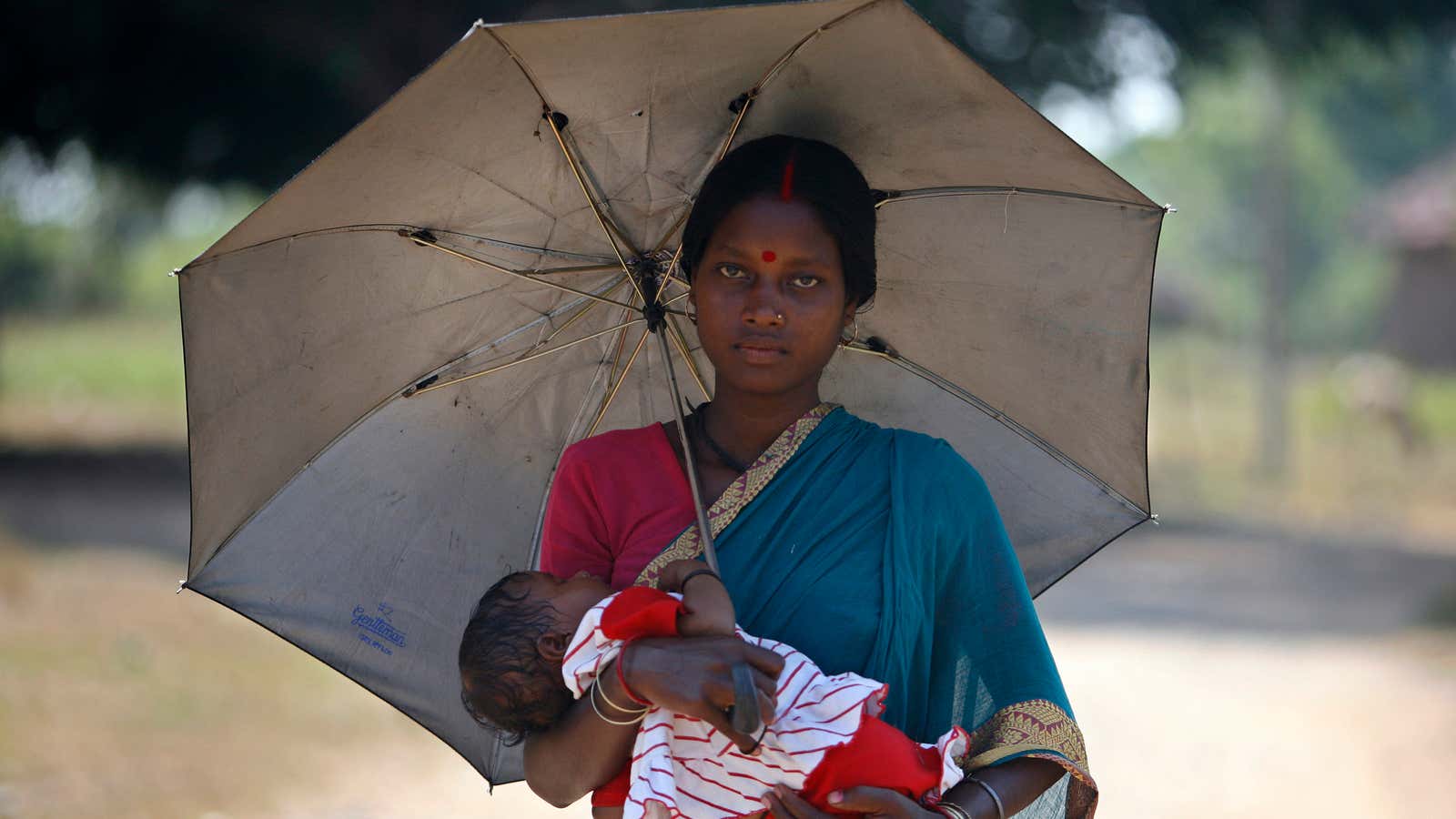India is readying the mother of all health insurance schemes, dubbed “Modicare.” Finance minister Arun Jaitley promised an ambitious health care scheme that would insure hospitalisation costs of up to Rs5 lakh a year for nearly half-a-billion Indians. The announcement was central to his budget for financial year 2019, in the run up to the general elections next year.
The government has pitched the National Health Protection Scheme as a poll plank for 2019, but prime minister Narendra Modi’s own economic advisor believes the full roll-out may take up to 20 years.
“Something like this is complicated… in its complete form, it will probably take 20 years to roll out. From that one should not jump to the conclusion that nothing is going to happen from tomorrow,” Debroy, the chief of prime minister’s economic advisory council, told Quartz.
It would be fair to assume that a proposal like this would be heartily welcomed in a country that spends only about 1% of its $2.3 trillion GDP on health care. However, Modicare has faced a spate of criticism—from the measly Rs2,000 crore outlay for the first year and for being perceived as a threat to the existing public health care system to the lack of details.
“Partly, the criticism is premature because we still don’t have the details. One should wait a little bit for that to happen,” Debroy said in an interview last month. “There are states that already have their own health insurance schemes. For those it should not take that long to roll out, provided one agrees on what should be done. All 29 states, of course, it’s going to take time,” he added.
In any case, even in states like Karnataka or West Bengal, where such schemes already exist, the political leadership hasn’t been keen on working with the central government.
The biggest challenge, Debroy said, will be determining the beneficiaries. “The budget speech said it will be linked to SECC (socio-economic caste census), which does not give you a neat poverty line. It’s just a set of indicators. Plus this is a union government-funded scheme. Therefore, you must have the same framework for all states,” he said. And getting all states to agree on a single definition for the beneficiaries is easier said than done.
Given the lack of information or consensus, getting free health care to the country’s poor may indeed be a long-drawn-out process, as Debroy argues. The Modi government, however, would like to see at least some tangible progress in the scheme’s roll out, for it to yield votes in the 2019 elections.
